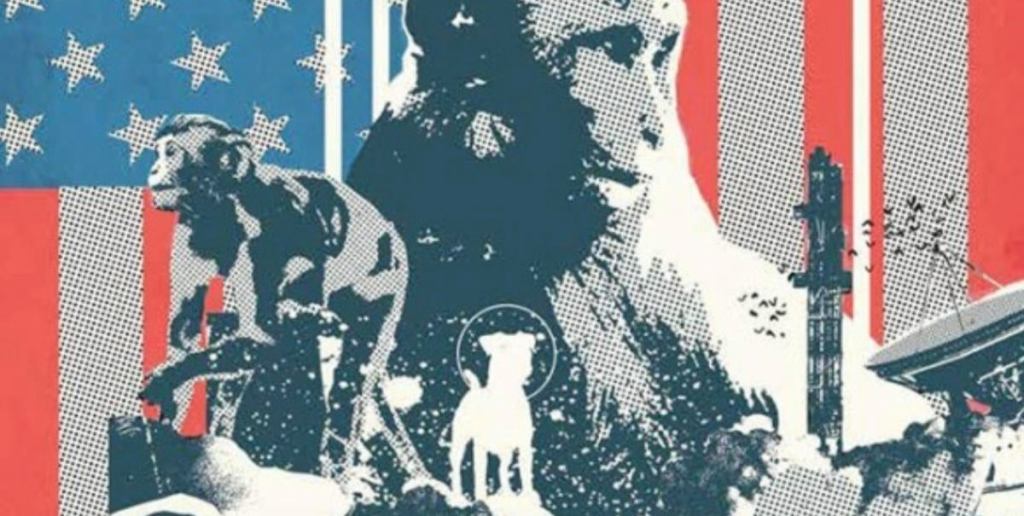Primordial #1 introduces readers to an alternate history in which the space race was suddenly ended when both the United States and Soviet’s initial “manned” expeditions went terribly awry. The issue begins in 1961 as the final pieces of the U.S. space program are swept away at Cape Canaveral with Nixon having won the recent election and all scientific resources focused on nuclear missiles. In addition to an intriguing premise, Primordial #1 brings ambitious and innovative comics storytelling from artist Andrea Sorrentino and writer Jeff Lemire in a story that’s as much about the present as the past in its examination of humanity’s place on Earth and amongst all living things.
Videos by ComicBook.com
That summary or the solicit summarize the events of the first issue neatly (besides what happened to the animals first sent to space to die: the dog Laika by the Soviets and monkeys Able and Baker by the U.S.). What’s most impressive about the debut is how it presents its premise to readers. Lemire and Sorrentino are unique comics artists both possessing a willingness to experiment with formal elements of storytelling. Their partnership, already shown to be a powerful force in series like Gideon Falls, continues engaging readers with pages that challenge how the medium communicates space and time.

The present perspective of the narrative is told in a six-panel grid familiar to any reader who ever lifted a Ditko-influenced comic book, but it doesn’t take long for that stable vision of reality to shatter. The very first page shows readers the start of Able and Baker’s flight as it devolves into unorganized panels upon approaching the atmosphere. This effect is continued throughout the issue as any address of the truth disrupts stability.
What’s most impressive are the sequences devoted to these early space flights and how Sorrentino warps forms to alter the reading experience. The final moments of Able and Baker’s flights show space enveloping them with an unreal sense of depth. These call the very nature of reality into question just as Dr. Pembrook, the researcher investigating what happened, falls into the realm of conspiracy. Sorrentino’s clean line work and clear designs make these formal experiments perfectly understandable, even when the purpose is to disorient.
The conspiracy elements will remind fans of Gideon Falls, no doubt, but the conspiracy does not appear to be at the heart of Primordial. To the series’ benefit, the question centers on what exactly the conspiracy seeks to hide. This allows Dr. Pembrook and the reader’s own questions to focus on why as much as what. To that end the series evokes clear relationships between Homo sapiens and the many other species occupying the planet. A spread of Baker’s seeming final moments empathizes with the animal’s fear and pain more clearly than any person in the issue, and the connection between man’s scientific exploration and animal suffering has never been more clear than in the wake of the United Nations most recent report on climate change.
The final few pages are every bit as astounding. Even as Sorrentino alters her approach from an increasingly impressive series of spreads to a much more stable layout, her alteration in style evokes a clear sense of life and will evoke comparisons to We3, another parable of man’s hubris and animal rights.
And so Primordial prepares to consider our present state by reflecting upon the past – considering themes that stretch throughout natural history and competition between species. It seems that competition will no simply be among the clashing clans of humanity, but both those more advanced than ourselves and those we so often dismiss for a lack of language. The series’ direction and conception of these ideas is unclear, but the promise of Primordial #1 is undeniable.
Published by Image Comics
On September 15, 2021
Written by Jeff Lemire
Art by Andrea Sorrentino
Colors by Dave Stewart
Letters by Steve Wands
Cover by Andrea Sorrentino








